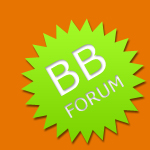 |
Enricoo's Forum
Muziek, Films, Games, Software, ...
|
| Vorige onderwerp :: Volgende onderwerp |
| Auteur |
Bericht |
Megan Hemingway
Nieuw
Geregistreerd op: 30 Mrt 2022
Berichten: 3
|
 Geplaatst: 30-03-2022 06:18:34 Onderwerp: blank fitted hats Geplaatst: 30-03-2022 06:18:34 Onderwerp: blank fitted hats |
 |
|
Notice two uses of the prefix un- . UN- added black fitted hat to a verb gives another verb.A / / A / / un use able This analysis is supported by the general behavior of these affixes. As we saw, there is a prefix un- that attaches to adjectives to make adjectives with a negative meaning ( unhurt , untrue , etc.). And there is a suffix -able that attaches to verbs and forms adjectives ( believable , fixable , readable ). This gives us the analysis pictured above. There is no way to combine a prefix un- directly with the verb use , so the other logically possible structure won't work.
The ancestor of most of the languages of Europe, which we will talk about in the lecture on historical linguistics, had an infix /n/ that marked certain verb stems black nike hat as present. This can still be seen in a few relics in Latin. For example, 'I conquer' is vinco , with an /n/, but I conquered is vici , without the /n/, as in Julius Caesar's famous quote " Veni, vidi, vici ", 'I came, black trucker hat I saw, I conquered.' English doesn't really have any infixes, except for certain expletives in colloquial expressions like these.
The most common type is called agreement or concord , which is where an adjective takes endings which indicate information about the noun they modify, like whether it is singular or plural, what gender it is or what case it is in. Consider, e.g., the difference in French between vin rouge 'red wine' and vins rouge s 'red wines'. General properties of inflectional morphemes:grace (to) grace ? ? graceful gracefulness ? gracefully ? ungraceful blank fitted hats ungracefulness ungracefully graceless gracelessness ?? gracelessly ?? ? gracious graciousness ? ? graciously ?.
ungracious ungraciousness ? ungraciously ? disgrace disgraceful disgracefulness ? disgracefully ? (to) disgrace ? Notice that each word that results from a derivational process can then participate in a further derivation . For example disgracefully is derived from disgraceful , which is derived from disgrace which is derived from grace . This is quite unlike inflection, where the set of relationships is fixed by the overall grammar of the language.One special type of morphology stands somewhat outside these distinctions.
So while in Modern English we might say the end of the book , in Old English we would have said thaet ende tha es boc es , where we have endings on the noun and determiner instead of a preposition. Some examples like this aren't all that problematic. There really is a syntactic difference between the two modes of expression. But with the example at hand, there is some evidence, which would take us too far afield, to indicate that certain PPs blank new era hats are not really syntactic phrases at all, but just funny types of morphology.
Thus while plural formation in English is clearly morphological, it is not clear whether the addition of the possessive clitic is morphological or syntactic. The point is, the line between syntax and morphology is somewhat blurred.Assuming that we could somehow come up with a consistent way to draw the line between syntax and morphology, we have to wonder then how the two are related. Since they deal with very similar things, they must be tightly connected, but it  is not entirely clear how they should be ordered. is not entirely clear how they should be ordered. |
|
| Terug naar boven |
|
 |
|
|
Je mag geen nieuwe onderwerpen plaatsen in dit subforum
Je mag geen reacties plaatsen in dit subforum
Je mag je berichten niet bewerken in dit subforum
Je mag je berichten niet verwijderen in dit subforum
Je mag niet stemmen in polls in dit subforum
|
Wilt u geen reclame op dit forum en genieten van extra voordelen? Klik dan vlug hier voor meer informatie!
Powered by phpBB
immo op Realo
Maak snel, eenvoudig en gratis uw eigen forum: Gratis Forum |




